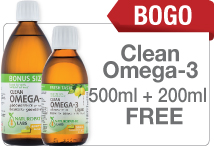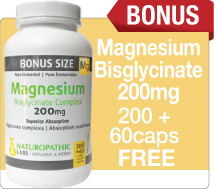Lutein & Zeaxanthin
Updated Oct. 13th, 2017
Lutein and zeaxanthin are both different isomers of the same xanthophyll pigment molecule. They are naturally occurring carotenoids found in highest abundance in green leafy vegetables. Both of these molecules play a large role in eye health. They are both found to be highly concentrated in the retina, which is the lining on the back of the eye that is responsible for vision.
Like with many other carotenoids, any lutein and zeaxanthin that is not used for immediate bodily requirements is able to act as an antioxidant to reduce free radical damage to the tissues.
eye health
Lutein and zeaxanthin are responsible for the ability of our eyes to absorb blue light, which is a wavelength of light that produces free radicals and puts significant oxidative stress on tissues. Studies show a correlation between high lutein consumption and increased pigmentation of the retina. Increased pigment has been shown to lower your risk of macular degeneration and cataracts, although it doesn't reverse already established illnesses. Interestingly, lutein is found in highest concentration in the peripheral retina, which better senses motion and black-and-white. Zeaxanthin, on the other hand, is found to be highly concentrated in the macula, the more detail and colour-sensitive region of the retina. Lutein may also prove helpful for retinopathies associated with advanced diabetes likely from protection against damage from excess sugar in the blood.
Other Benefits
High lutein consumption has been associated with a reduced incidence of prostate cancer in men. It may also help prevent or slow down the thickening of the arteries known as atherosclerosis, which is a major risk for cardiovascular disease. Interestingly, cardiovascular disease is often accelerated by free radical damage.
How can I get lutein and zeaxanthin?
Eating a diet rich in green leafy vegetables like spinach, kale and collard greens is a great way to increase your lutein and zeaxanthin intake. As a supplement, lutein comes individually in capsules, or as a sublingual spray for those with compromised digestion. Both lutein and zeaxanthin can be found in a number of combination formulas for eye health. There is currently no recommended dosage for lutein or zeaxanthin. Many supplements commonly suggest between 6-12mg/day of lutein and 2-6mg/day of zeaxanthin. It is advisable to follow the recommended dosage provided by each manufacturer.
Important Information
Lutein and zeaxanthin are non-toxic, but can cause harmless yellow-orange skin pigmentation if consumed in very large amounts.























I have recently been learning more about the benefits of lutein and have started taking it, but I had no idea that lutein could be found in so many different food sources! It comes as no surprise that it would be found in green leafy vegetables, as I find those are always a sure bet to finding the best nutrients and vitamins that you need! However, finding it in eggs was a surprise for me - I would not have known this otherwise! It is great to know where to find it naturally as well :)
Hello, OH,
We're happy you enjoyed our article, thank you for sharing. Indeed, it's nice to know what foods contain certain nutrients, but unfortunately due to our soil being depleted of a lot of nutrients, our food is lacking in high amounts of nutrients. Therefore, you would have to eat a lot of these foods to get enough of the nutrient. If you'd like to find some healthy recipes you can include these ingredients in, check out our healthy recipes too:
https://www.nationalnutrition.ca/articles/healthy-recipes/
Stay healthy & well.